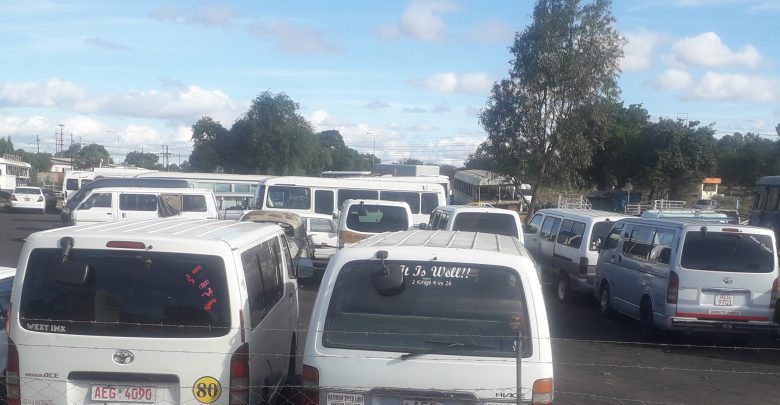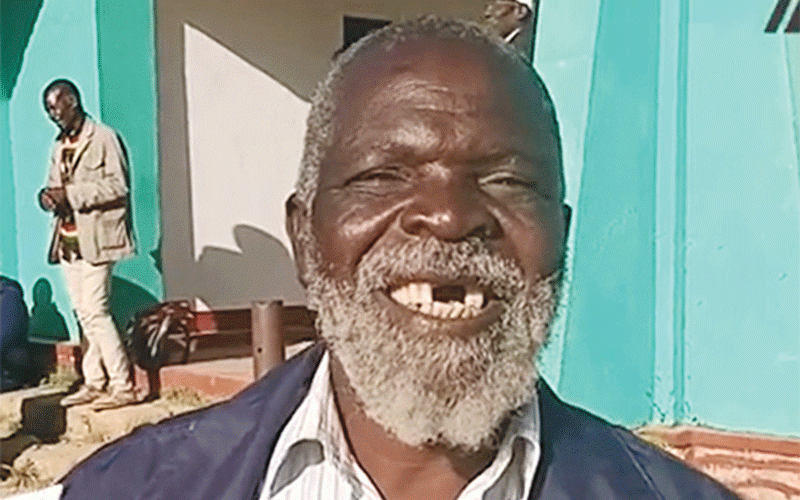
By Fortune Muzarabani
Bulawayo public transport operators have expressed discontentment at being side-lined by the government after their operations were suspended during the 21 day COVID-19 lockdown, leaving thousands of families whose livelihoods are sustained by the taxi industry facing a threat of starvation.
Transport operators in the city are feeling the pinch, as they have now gone for a full two weeks without operating, with the usually busy Sixth Avenue and TM Hyper taxi ranks now deserted.
There is speculation of a lockdown extension after South Africa extended its knockdown by a fortnight.
This comes after President Emmerson Mnangagwa said the government will review the lockdown and most of the public transporters fear that if extended, the lockdown period could bring more turmoil to their families.
The taxi industry is a major employer in metropolitans in the country as it employs thousands of drivers, conductors, touts and has many people including vendors benefitting from the high human traffic volumes at taxi ranks.
In Bulawayo, an estimated 5000 commuter omnibuses ferry commuters to different destinations within the city, while many more operators transport the public on long-distance routes.
Commuter omnibus operators who spoke to CITE yesterday lamented how the government excluded them from the essential services waiver, saying they must have been included.
In an interview, Tshova Mubaiwa Transport Corporation chairperson Atlas Moyo said taxi associations which have served the Bulawayo community for nearly four decades were left in the cold yet they contributed to the economy of the city and the country.
Tshova Mubaiwa has about 600 registered commuter omnibus under its scheme.
He said families of taxi owners and their employees were going hungry and running out of major supplies after the government gave people only two days to prepare for the lockdown.
Moyo also lamented high operating costs which left many people without savings at all.
“Due to the low taxi fares that we have been charging, the majority of our operators, the kombi owners are living from hand to mouth. The money needed for vehicle maintenance takes so much of the chunk that the crew brings for the day, so there was never enough time to prepare,” he said.
“We as taxi operators have been diligently operating for over 40 years, we were there just before independence. The ZUPCO buses disappeared from urban routes for 37 years and made a very short come back stint in 2008, however, we are now being side-lined in such a painful manner.
“We pay our dues, we pay taxes and licences, our books are in order. If the government could not accommodate all of us at the same time noting that there are very few people working at this time, a system could have been devised. Where there is a will there is a way. We understand the need for the lockdown and know that the health of the people is at stake, but there Is untold suffering out there.”
Some taxi drivers from Bulawayo Public Transporters Association (BUPTA) who spoke to CITE said they were feeling emasculated as they could no longer provide for families.
“I have never been rich but I have never failed to take care of my family. After cashing my daily takings, I always have something left for my family and they have not lacked before. I have known the life of working up at 4 am and going to sleep at nearly midnight. I have run out of my little forex savings and I do not know what’s next,” said Mbongeni Ndlovu from Bulawayo’s Emakhandeni suburb.
Another kombi driver said spending the day at home was bringing shame to him as he was unable to provide for his family.
Ms Sakhile Ncube, a commuter omnibus owner said she has been unemployed for two years and solely relies on her two kombis for sustenance.
“I am a mother, I had just taken the cars for service as it was month-end and then the lockdown was announced. I am very frustrated as I don’t even know where to get money for basics even. I also feel for crew who have also been trying to borrow from me, especially one of my driver who has a heavily pregnant wife,” she said.
Another taxi association representative Daniel Pondo from the Bulawayo City Transit association said hunger was not only knocking at the households of owners and direct employees but a lot of the informal economy in the city was dependent on the vibrant and high human traffic of taxi ranks.
“Taxi ranks are always a hive of activity, providing opportunities for informal traders to ply different trades there. It’s not only the driver, power and frank marshal affected. This thing affects the vendors, the young boys who make a living out of washing cars and polishing tyres at taxi ranks, the beggars, the touts, the rank marshals and so many more. All those people have mouths to feed. We are feeling the sting of this Covid19 lockdown,” he said.





